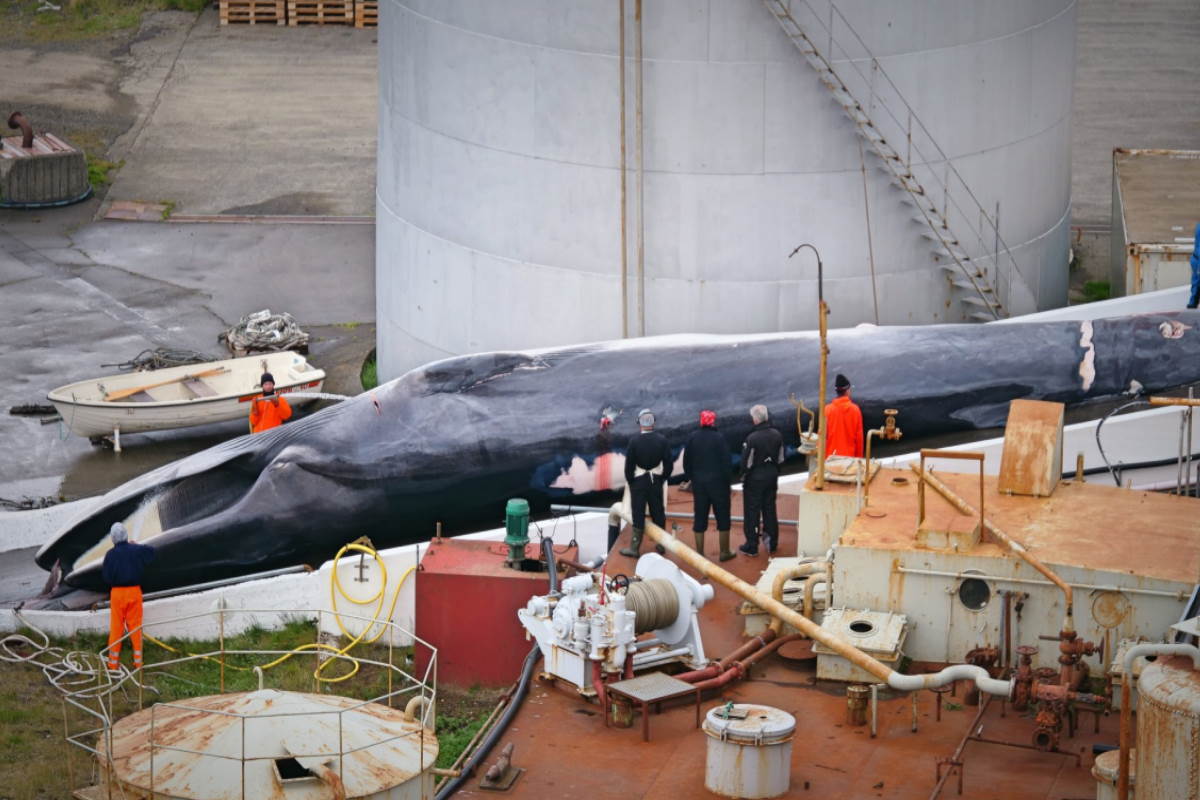Whaling in Iceland will not end this year either. The government has just renewed the license to slaughter cetaceans in its waters. Animal rights activists are thundering, accusing the country of not doing enough for the conservation of this vulnerable species

©Hvalavinir-Stop whaling in Iceland/Facebook
Another whale hunting season will commence in Iceland, signaling the start of the brutal slaughter of these majestic creatures in the country’s waters. This decision was made by Bjarkey Olsen Gunnarsdóttir, the Minister for Food, Agriculture, and Fisheries, who granted the 2024 hunting license to Hvalur hf., Iceland’s last remaining whaling company.
In an official statement, the minister renewed the company’s permit and announced the number of whales that can be hunted this year based on conservation and ecosystem factors.
128 fin whales to be slaughtered
A total of 128 fin whales will be hunted: 99 in the Greenland/Iceland Western region and 29 in the Eastern Iceland/Faroe Islands region, during the traditional hunting period from June to September.
“The decision is based on a precautionary approach and reflects the government’s increased emphasis on sustainable resource use,” the statement reads, but this justification falls short for many.
Inhumane hunting practices under scrutiny
Animal protection organizations harshly criticize the practice, as it causes unimaginable suffering to the whales due to its extreme brutality. Many of the fin whales, some of which are pregnant, are killed from a distance using harpoons that pierce their flesh. However, not all of them die instantly.
Sometimes, multiple harpoons are needed to kill the whale. On average, whales die after nearly 12 minutes, but death can take hours, leading to prolonged agony. This was revealed in a report from last year’s 2022 hunting season.
Gruesome details from 2022 report
The report highlighted cases where two whales were struck four times each, with one dying after an hour and the other after two hours. Despite stricter regulations imposed by the Icelandic government, such as the ban on killing fin whales accompanied by calves, the massacre continues.
Disappointment from animal welfare advocates
Adam Peyman, Director of Wildlife Programs at Humane Society International, expressed profound disappointment in Minister Bjarkey Olsen Gunnarsdóttir’s decision.
“History could have been made by choosing not to renew the license for the Icelandic whaling fleet and curbing one of the many threats to the conservation of fin whales, but that didn’t happen. Iceland had the opportunity to do the right thing and chose not to,” commented a disheartened Peyman.
Sources: Stjórnarráð Íslands – HSI
